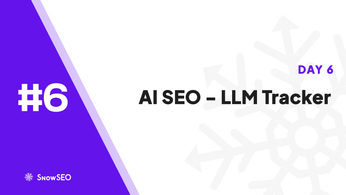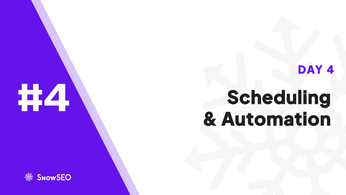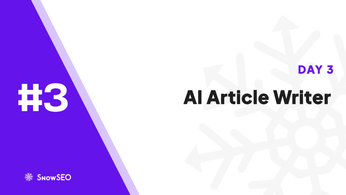
10 Best Tools for Competitor SEO Analysis
Table of Contents
Discover the ultimate SEO tools that can transform your competitive analysis strategy. Whether you manage a boutique agency or a Fortune 500 brand, you already know that ranking battles are won or lost long before keywords are typed into a search bar. The secret edge? A clear, data-driven view of what your rivals are doing right now.
The problem is simple yet pressing: search algorithms evolve daily, and competitors pivot just as quickly. Relying on instinct or outdated spreadsheets leaves costly blind spots that drain traffic, leads, and revenue. Without the right toolkit, you’re guessing while your competitors are optimizing.
This guide solves that challenge by spotlighting the ten most powerful platforms for competitor SEO analysis. Each tool breaks down backlinks, content gaps, SERP features, and technical signals so you can turn raw metrics into focused action plans. You’ll know exactly which high-value keywords to pursue, which links to replicate, and which on-page tweaks deliver the quickest wins.
Trusted by industry thought leaders and reinforced by real-world case studies where companies boosted leads by up to 45 percent, these tools deliver battle-tested insights you can deploy today.
What is Competitor SEO Analysis?
Competitor SEO analysis is the practice of dissecting a rival website’s search strategy to uncover exactly why it outranks or underperforms compared with yours. Instead of guessing what Google loves, you reverse-engineer the pages already winning the clicks you want. By zooming in on keywords, backlinks, technical setup, and content depth, you spot quick wins and long-term gaps that can decisively shift market share.

| Metric Examined | Insight Gained |
|---|---|
| Organic keywords | Which search terms drive traffic to competitors |
| Backlink profile | Authority sources you can replicate or surpass |
| Content length & format | Benchmarks for word count, media use, and topic depth |
| Site architecture | How internal linking distributes ranking power |
| Page speed & Core Web Vitals | Technical edge that influences user experience |
Pro tip: Treat competitor data as a moving target. Check it monthly so you react before rivals cement new advantages.
Key Benefits of Using SEO Analysis Tools
- Data accuracy at scale - Platforms like Ahrefs or SEMrush crawl billions of pages, delivering richer insights than manual checks.
- Time savings - Automated dashboards surface ranking shifts or backlink spikes in minutes, not days.
- Opportunity prioritization - Built-in metrics (Keyword Difficulty, Traffic Potential) help you tackle tasks with the highest ROI first.
- Risk mitigation - Spot sudden competitor penalties or updates early, reducing the chance of being blindsided.
- Benchmarking - Continuous tracking shows whether each tweak moves you closer to, or further from, the top position.
Also Read: Expert Guide: Scalable SEO Methods for Teams
Top 10 SEO Analysis Tools for Competitors
Stalking your rivals’ keywords is no longer a luxury - it’s the shortest path to owning page 1. Below is a field-tested lineup of the 10 best SEO analysis tools that growth teams rely on every day. For each platform you’ll find standout features, typical pricing tiers, and a quick note on who should consider it first.
| # | Tool | Core Strength | Starting Price (monthly) | Ideal For |
|---|---|---|---|---|
| 1 | Ahrefs | Crawling depth & backlink intel | $99 | Agencies, in-house SEO |
| 2 | SEMrush | All-in-one marketing suite | $129.95 | Mid-market & enterprise |
| 3 | Moz Pro | User-friendly metrics (DA, PA) | $99 | Small teams & bloggers |
| 4 | SpyFu | Historical PPC & keyword data | $39 | PPC specialists |
| 5 | SimilarWeb | Market-level traffic estimates | $125 | Competitive analysts |
| 6 | Serpstat | Budget-friendly all-rounder | $69 | Start-ups |
| 7 | BuzzSumo | Content performance tracking | $119 | Content marketers |
| 8 | Majestic | Link graph visualization | £39.99 | Backlink auditors |
| 9 | Screaming Frog SEO Spider | Site technical audits | £0–£259 (annual) | Technical SEO pros |
| 10 | Ubersuggest | Simplified keyword research | $29 | Solo entrepreneurs |
Pro tip: 90% of SEO professionals combine at least two of these tools to balance data accuracy, feature depth, and cost efficiency.
Tool #1: Ahrefs
Few platforms crawl the web as aggressively as Ahrefs. Its Site Explorer surfaces every backlink a competitor has earned, while Content Gap pinpoints keywords they rank for that you don’t.
Key features:
- Backlink index updated every 15 minutes
- Organic keyword tracker across 243 countries
- Batch analysis for up to 200 URLs
- SERP history snapshots for trend watching
Pricing snapshot:
- Lite: $99 - perfect for freelancers tracking a handful of domains
- Standard: $199 - unlocks 1,500 tracked keywords and advanced reports
- Advanced to Enterprise: $399–$999 - built for agencies juggling dozens of clients
Case study: A B2B SaaS company used Ahrefs’ Content Gap report to discover 37 unaddressed intent keywords, restructured its blog calendar, and boosted demo sign-ups by 45% in one quarter.
Tool #2: SEMrush
SEMrush markets itself as “the Swiss-army knife for digital marketing,” and for good reason. Beyond SEO it layers paid search, social media, and even Amazon listing analytics into a single dashboard.
Standout modules:
- Domain Overview - one-click look at competitors’ organic traffic, paid ads, and top keywords.
- Keyword Magic - 25B-plus keyword database with intent filters.
- Traffic Journey - visualizes how users arrive and move through a rival’s site.
- Listing Management - local SEO citations across 70+ directories.
Pricing tiers:
- Pro: $129.95 - generous for small businesses
- Guru: $249.95 - content marketing toolkit unlocked
- Business: $499.95 - API access and Share of Voice reports
If your goal is a single login to manage SEO, PPC, and social competitor insights, SEMrush stands tall despite the steeper entry price.

Tool #3: Moz Pro
Moz built its reputation on the Domain Authority metric; today its Keyword Explorer still feels like the most intuitive UI for newcomers.
Highlight reel:
- Reliable DA/PA scores for fast link prospecting
- Fresh web index updates every 24 hours
- On-page grader with prioritized fixes
Plans start at $99; higher tiers lift query limits and add branded reporting.
Tool #4: SpyFu
SpyFu’s unique selling point is time travel. It stores 16+ years of Google Ads and organic keywords, letting you trace exactly when a rival scaled spend or pivoted topics.
Why users love it:
- Unlimited data exports (no surprise bills)
- Kombat report reveals keyword overlaps between three competitors side-by-side
- Affordable entry price of $39 per month
Tool #5: SimilarWeb
Need to benchmark total traffic rather than just search? SimilarWeb estimates visits, engagement metrics, and marketing channels, making it indispensable for market sizing.
Core competencies:
- Source breakdown (search, social, referrals, ads, direct)
- Audience geography and interests
- Industry benchmarking against category leaders
Starter plans hover near $125, with enterprise custom quotes for API access.
Tool #6: Serpstat
Serpstat packs keyword research, rank tracking, and site audit features at roughly half the cost of the “big two.”
Notable perks:
- Cluster research groups keywords by intent automatically
- Growth hacking tool surfaces low-hanging optimization wins
- Shared accounts allow unlimited seats on every plan
Pricing begins at $69, making it popular with bootstrapped start-ups.
Tool #7: BuzzSumo
While BuzzSumo is pitched as a content tool, its social share statistics help reverse-engineer what goes viral for competitors.
Key functions:
- Content Analyzer shows engagement by network, length, and format
- Influencer discovery for outreach opportunities
- Crisis alerts when a competitor’s content surges unexpectedly
Expect to pay $119 for the basic plan; heavy users can scale to $299.
Tool #8: Majestic
Majestic’s heritage is pure backlink science. The flagship Link Graph visualizes how domains interconnect, revealing hidden PBNs or spammy neighborhoods.
Quick facts:
- Trust Flow vs Citation Flow scoring
- Historical index dating back to 2011
- Raw export of every link and anchor text
Pricing starts at £39.99 per month, billed in GBP.
Tool #9: Screaming Frog SEO Spider
Sometimes you want your competitor’s site structure on your own hard drive. Screaming Frog crawls up to 500 URLs free; beyond that you’ll need a £259 annual license.
Use cases:
- Find orphan pages competitors forgot to redirect
- Pull every title, meta description, and H1 into Excel for gap analysis
- Validate hreflang, canonicals, and Core Web Vitals at scale
Tool #10: Ubersuggest
Created by marketer Neil Patel, Ubersuggest distills keyword research and basic site audits into a wallet-friendly interface.
Highlights:
- Daily rank tracking for 20-160 keywords
- AI content idea generator
- Traffic estimation and backlink data pulled from its own mini-crawler
It’s hard to argue with a $29 starting price, especially for solo consultants.
Decision shortcut: If backlinks are your battlefield, start with Ahrefs or Majestic. If all-in-one marketing alignment matters more, SEMrush claims the throne. Pair any of them with Screaming Frog for technical audits and you’ll cover 95% of competitive intel needs without blowing the budget.
The best strategy is to pilot two tools for 30 days, compare overlaps, and keep the one that surfaces unique insights your team can act on fastest.
Also Read: Secrets of Effective Competitor SEO Analysis
How to Choose the Right SEO Tool for Your Needs
Selecting the perfect platform can feel like speed-dating a dozen dashboards at once. Instead of chasing shiny features, ground your decision in clear business outcomes and best practices for competitor SEO analysis.
After you outline goals, pause for a guided walkthrough of the evaluation process below.
1. Factors to Consider
Quick Tip: Start with a 14-day data snapshot from your current analytics. It reveals the metrics a new tool must improve, not just match.
- Core Feature Set
- Backlink index size
- Keyword database freshness
- Competitor gap analysis depth
- Data Accuracy & Update Frequency
- Daily or real-time crawls matter if you track volatile SERPs such as news or e-commerce.
- Ease of Use
- Look for drag-and-drop dashboards and automated reports that non-SEOs can digest.
- Integrations
- Native connectors with Google Data Studio, Slack, or CRM platforms reduce manual exports.
- Pricing vs. Seat Limits
- Hidden user caps can double costs as your team scales.
- Learning Curve & Support
- Live chat, certified academies, and active user communities slash ramp-up time.
| Decision Metric | Why It Matters | Red Flag |
|---|---|---|
| Update frequency | Ensures timely competitor insights | Weekly crawls on volatile niches |
| User seats included | Controls total cost of ownership | Charges per additional login |
| API access | Powers custom dashboards | Limited calls throttle automation |
Finally, run a side-by-side trial for one full reporting cycle. If a tool surfaces actions that your team actually implements - and you see ranking lifts within 30-45 days - you’ve found the keeper.
Ready to turn insights into impact? With the competitive data you’ve just gathered, the next move is execution, and that’s where SnowSEO steps in. The platform unifies every step you need - keyword discovery, gap-filling content generation, rank tracking, and even CMS publishing - inside one intuitive dashboard, so you’re not juggling ten separate subscriptions. Imagine monitoring a rival’s surge in backlinks at breakfast, spinning up a fully optimized response article by lunch, and seeing it indexed before dinner. SnowSEO’s AI co-pilot also scans ChatGPT, Grok, Bing, Claude, and Google for brand mentions, letting you react where customers actually search today. Best of all, the first projects come with no cost barriers, so you can test drive the automations against the very tactics outlined above. Explore these tools with free trials to boost your SEO strategy. Visit https://snowseo.com, start a free account in under two minutes, import your top three competitors, and watch SnowSEO surface the quickest win opportunities - before your rivals even notice you’re closing the gap. Plus, weekly GEO and SEO reports land in your inbox, turning raw numbers into clear, actionable next steps.
Frequently Asked Questions
Q1: How many competitor analysis tools do I actually need?
Relying on a single platform can leave blind spots. Most SEO pros run a core tool like Ahrefs or SEMrush for backlink and keyword data, then layer one or two niche solutions for SERP snapshots, ad intelligence, or traffic estimates. Start with one full-stack suite, evaluate gaps after a month, and add only what clearly complements your workflow and budget.
Q2: Are free versions of these tools worth my time?
Freemium tiers are great for quick health checks, but they cap crucial metrics such as historical rankings, advanced filters, and API access. Use free plans to validate a tool’s interface and data freshness. If it uncovers actionable insights in the first week, upgrade to a paid tier; the ROI from one well-informed content decision often covers the monthly fee.
Q3: How often should I run competitor audits?
Set a monthly cadence for in-depth audits and weekly mini-check-ins on ranking volatility. Major algorithm updates or a competitor’s sudden traffic spike warrant an immediate deep dive. Automate alerts for keyword movements and backlink gains, then reserve manual analysis for strategy pivots-this balance keeps you informed without drowning in dashboards.
Conclusion
Search engines may change algorithms daily, but one truth remains: if you can see what outranks you, you can outthink it. Competitor analysis tools turn scattered SERP data into actionable intelligence, helping you reverse-engineer winning strategies instead of guessing.
Key takeaways
- Understanding the need for competitive analysis tools: They reveal backlink gaps, keyword opportunities, and content formats your market already rewards.
- Detailed insights on top tools and features: From Ahrefs’ backlink index to SimilarWeb’s traffic estimations, each platform excels in a specific dimension, allowing layered insights when used together.
- Practical guidance for tool selection: Match features to objectives-deep link auditing for technical fixes, keyword gap charts for content planning, or real-time SERP monitoring for agile teams.
Survey data shows that professionals who combine two or more platforms report higher traffic lifts than those relying on a single dashboard.
Call to action: Explore these tools with free trials to experience the data first-hand and decide which interface fits your workflow.
Next steps: Start with the freemium tiers, benchmark a handful of pages, then expand to paid plans once metrics prove worth.





